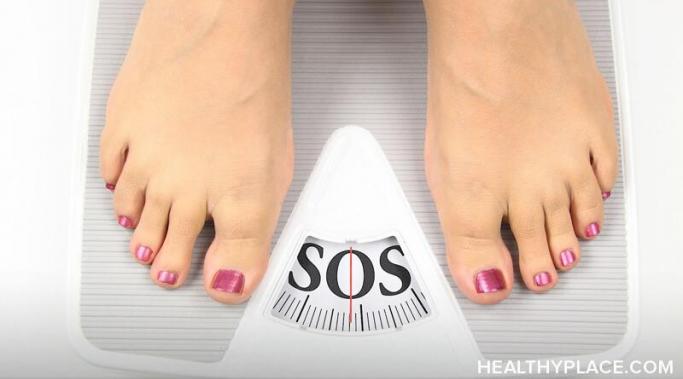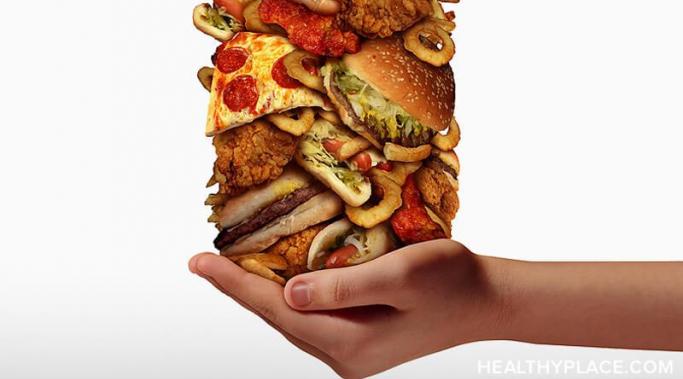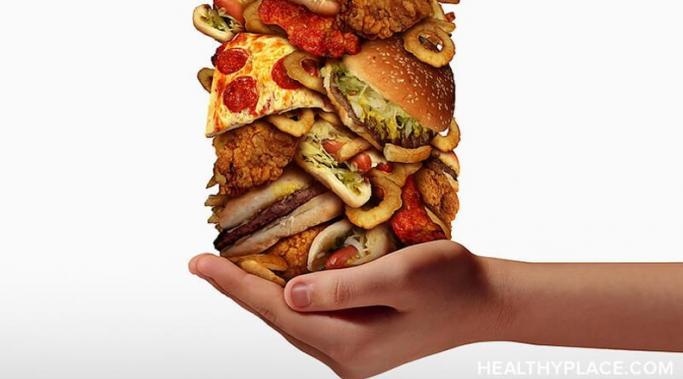Refraining from summer binge eating can be challenging if you are in binge eating disorder recovery. As temperatures rise, the media heaps on the pressure to have the perfect "beach body," routines go out the window, and co-occurring mental health issues such as anxiety and depression may arise — all of which can trigger summer binge eating.
Binge Eating
Like many sufferers of binge eating disorder, I struggled with loving my body and other body issues for many years. As a child, I loved food and books and was not a fan of exercise. I was never fat, but I was chubby enough to be teased by the boys at school. As an awkward teenager, magazines taught me how to hate my body.
Waking up the morning after binge eating is a horrible feeling. As the gray light of dawn filters into my room, the furniture begins to emerge from the darkness, and I emerge from sleep into a growing sense of trepidation. My bloated and uncomfortable belly bluntly reminds me I've binged again.
It took a while, but my anxiety led to binge eating disorder (BED). It happened insidiously because I've always had a complicated relationship with food. I love to think, talk about, cook, eat, and share food. At times, I have treated it as my enemy, and at others, I have turned to it for comfort. I've always been an emotional eater, and whether I'm celebrating or commiserating, there's food for every occasion.
I've been in coronavirus confinement at home in Barcelona for over a month, and my binge eating cravings are driving me crazy. My body and mind feel like a battleground. I'm in a constant struggle with myself over food.
The coronavirus triggered binge eating for me. The binges were triggered for me because the outbreak of coronavirus in northern Italy directly impacted me.
My name is Brittany Roche, and I am thrilled to join the HealthyPlace blogging community as an author for Binge Eating Recovery. I was diagnosed with bipolar disorder at 14, and have struggled with anxiety and disordered eating (mostly binge eating disorder) for as long as I can remember. I know all too well binge eating is often a difficult subject to talk about which makes communities such as this so vital and powerful for those of us on the path to binge eating recovery.
For 20 years, every bingeing relapse caused me so much guilt, I returned to binge eating. Until recently, I considered every bingeing relapse a disaster and myself as a failure that would never get better. Binge eating is one of the most difficult aspects of my life to discuss because I feel guilty that there are hungry people and I overeat. I also feel ashamed that I allow myself to lose control like this, so when I have a bingeing relapse, all of these emotions intensify. It was not until I stopped thinking in terms of success and failure that I began making progress, and I’d like to share ways I have retrained my brain to navigate my recovery and learn from a bingeing relapse.
I’m Daina Frame, and I’m excited to join HealthyPlace and Binge Eating Recovery to write about my recovery with eating disorders. I am 34 years old, and I have struggled with eating disorders for almost 20 years. I only began talking about my disorders a year ago. Until then, I hid everything from everyone I know. I had always feared being honest about binge eating, bulimia, and anorexia. I was ashamed and scared to talk about the truth. While I have been able to stop purging and restricting, I still am working through binge eating disorder. In addition to eating disorders, I am in the process of recovery for bipolar disorder, depression, anxiety, and posttraumatic stress disorder (PTSD).
The restriction and binge cycle is a common occurrence when struggling with binge eating disorder. When active in my behaviors I had a tendency to cycle through this quite often. When we deprive ourselves of food, our body's reaction is to binge. With a balanced eating plan we can put a stop to this vicious cycle (Why Do I Need a Dietician on My Eating Disorder Treatment Team?).









